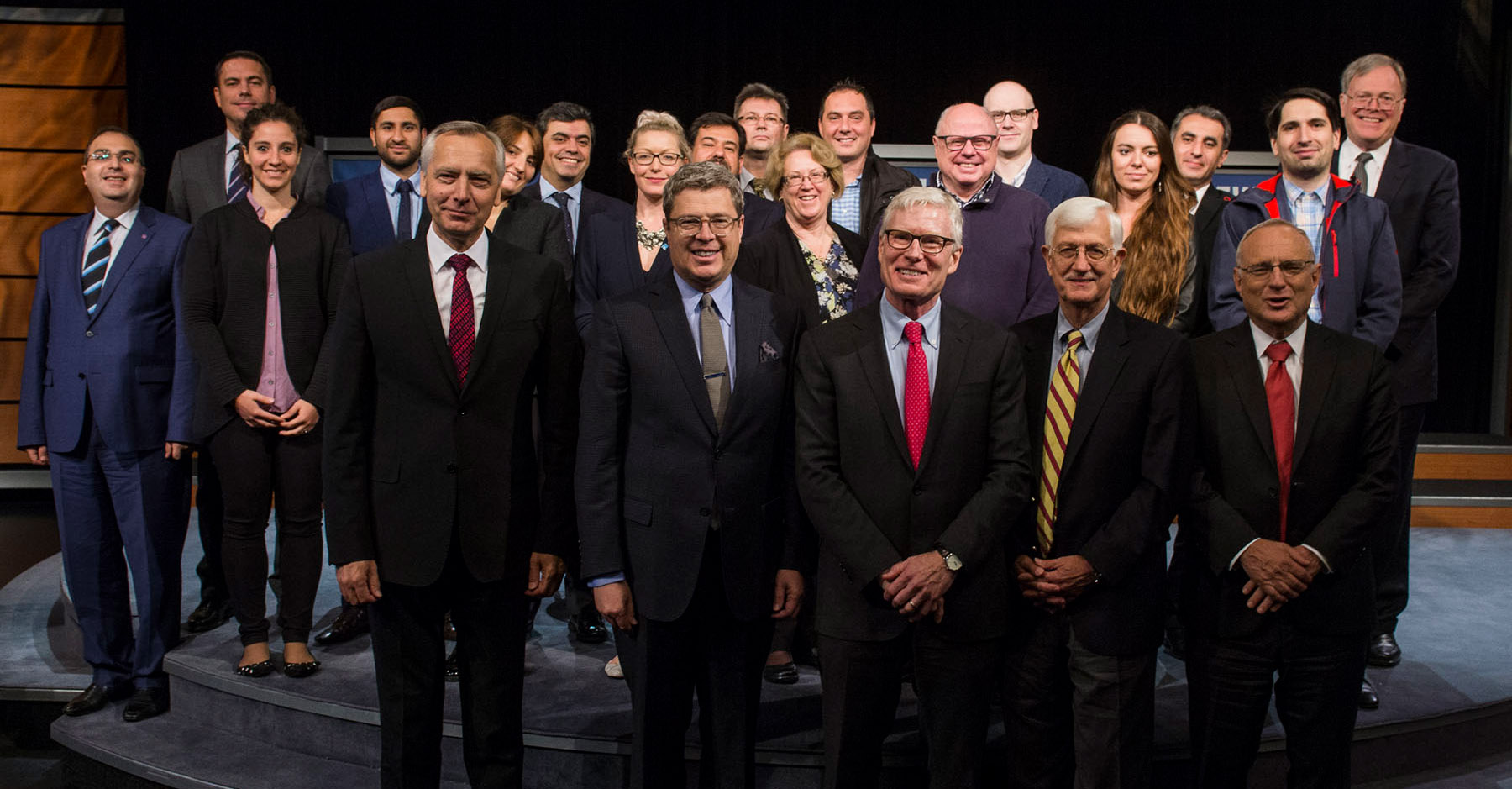Event at Newseum, 7 October 2016: International Protection of Religious Freedom

The International Center for Law and Religion Studies of Brigham Young University Law School and the Religious Freedom Center of the Newseum Institute brought together on 7 October 2016 at the Newseum Knight Conference Center in Washington DC, key scholars and actors involved in government responses to religious restrictions, to address pressing issues concerning the International Protection of Religious Freedom.
Professor Brett G. Scharffs, Director of the International Center for Law and Religion Studies, moderated a panel comprising Rabbi David N. Saperstein, the US State Department’s Ambassador-at-Large for International Religious Freedom; Honorable Ján Figel, the European Union’s first special envoy for the promotion of freedom of religion and belief outside the European Union; and Professor Thomas F. Farr, president of the Religious Freedom Institute and Associate Professor of the Practice of Religion and International Affairs at Georgetown University. Watch the discussion here.
MODERATOR
 Professor Brett G. Scharffs is the Francis R. Kirkham Professor of Law at Brigham Young University Law School and was appointed Director of the Law School’s International Center for Law and Religion Studies effective May 1, 2016. He had served the Center as Associate Director and Regional Advisor for Asia since 2009 and served the Law School as both Associate Dean of Academic Affairs and Associate Dean for Faculty and Curriculum. Professor Scharffs’ teaching and scholarly interests include law and religion, legal reasoning and rhetoric, philosophy of law, and legislation and regulation.
Professor Brett G. Scharffs is the Francis R. Kirkham Professor of Law at Brigham Young University Law School and was appointed Director of the Law School’s International Center for Law and Religion Studies effective May 1, 2016. He had served the Center as Associate Director and Regional Advisor for Asia since 2009 and served the Law School as both Associate Dean of Academic Affairs and Associate Dean for Faculty and Curriculum. Professor Scharffs’ teaching and scholarly interests include law and religion, legal reasoning and rhetoric, philosophy of law, and legislation and regulation.
PANELISTS

Ambassador David N. Saperstein is the Ambassador-at-Large for International Religious Freedom from the U.S. Department of State. The Ambassador at Large is, by law, a principal advisor to the President and Secretary of State and serves as the United States’ chief diplomat on issues of religious freedom worldwide. Previously, he served for 40 years as the Director of the Religious Action Center of Reform Judaism (RAC). A rabbi and an attorney, for 35 years Saperstein taught seminars in First Amendment Church-State Law and in Jewish Law at Georgetown University Law Center.
 The Honorable Ján Figeľ was recently appointed as the European Union’s first special envoy for the promotion of freedom of religion and belief outside the European Union. Previously, he served as the Slovakia’s State Secretary of the Ministry of Foreign Affairs and Chief Negotiator for Slovakia’s accession into the European Union. Mr. Figel began his career when he joined the Christian Democratic Movement party in 1990 and was elected two years later as a Member of Parliament to the National Council of the Slovak Republic, serving on its Foreign Affairs Committee and becoming a member of Slovakia’s delegation to the Council of Europe.
The Honorable Ján Figeľ was recently appointed as the European Union’s first special envoy for the promotion of freedom of religion and belief outside the European Union. Previously, he served as the Slovakia’s State Secretary of the Ministry of Foreign Affairs and Chief Negotiator for Slovakia’s accession into the European Union. Mr. Figel began his career when he joined the Christian Democratic Movement party in 1990 and was elected two years later as a Member of Parliament to the National Council of the Slovak Republic, serving on its Foreign Affairs Committee and becoming a member of Slovakia’s delegation to the Council of Europe.
 Professor Thomas F. Farr is the president of the Religious Freedom Institute and the Associate Professor of the Practice of Religion and International Affairs at Georgetown’s Edmund A. Walsh School of Foreign Service. He previously served as the director the State Department’s Office of International Religious Freedom and director of Georgetown’s Religious Freedom Research Project and served in the U.S. Army and Foreign Service for 28 years. The arguments Tom made in his 2008 book, World of Faith and Freedom: Why International Religious Freedom is Vital to American National Security (Oxford), have shaped legislation introduced in the Congress in 2016.
Professor Thomas F. Farr is the president of the Religious Freedom Institute and the Associate Professor of the Practice of Religion and International Affairs at Georgetown’s Edmund A. Walsh School of Foreign Service. He previously served as the director the State Department’s Office of International Religious Freedom and director of Georgetown’s Religious Freedom Research Project and served in the U.S. Army and Foreign Service for 28 years. The arguments Tom made in his 2008 book, World of Faith and Freedom: Why International Religious Freedom is Vital to American National Security (Oxford), have shaped legislation introduced in the Congress in 2016.
The Pew Research Center has estimated that 77% of the world’s population lives in countries that experience a high or very high level of religious restrictions, and studies reveal that high degrees of religious restrictions increase social violence and migration. Concerns about global religious freedom concerns have prompted a variety of responses from Western democracies. The European Union has recently appointed a new Special Envoy for the Promotion of Freedom of Religion Outside the European Union, while Canada eliminated the post of Ambassador-at-large for Religious Freedom. What do these events and other developments mean for addressing international religious freedom? How can governments most effectively promote tolerance and fight against religious restrictions?